Emergency Care
The scene that Animal Protection Officers found after entering the home where these cats were being kept was heartbreaking and devastating.
Cages held multiple animals together, some with as many as eight cats in one small space. Only two of the cats had been left to roam freely. Most had no choice but to stand or lie in layers of their own feces; their bodies were stained and dripping with urine. On entering, the air was so thick with ammonia you could smell it outside the door. It must have been unbearable to live inside. We’re just thankful that a concerned member of the public alerted us to the abandoned home when they noticed the terrible odour.
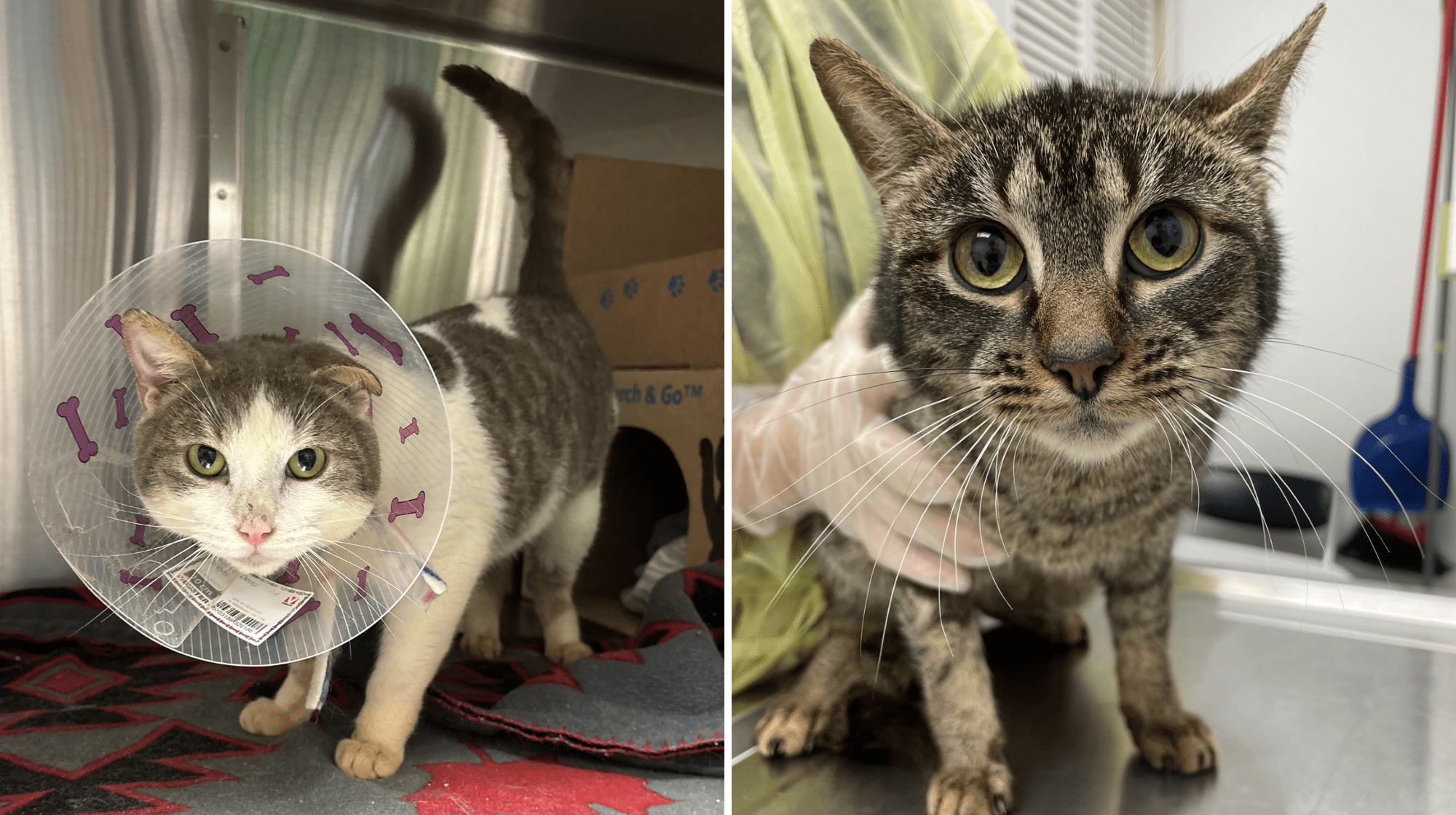
As officers investigated each room, shockingly the skeletal remains of three cats were found in the feces-covered bedroom. On entering the garage, they also found a heavy padlocked crate where a young puppy had passed away. The hearts of our team are heavy with the loss of these lives, as we’re sure yours is too. This really is one of the most difficult and troubling cases in recent memory.
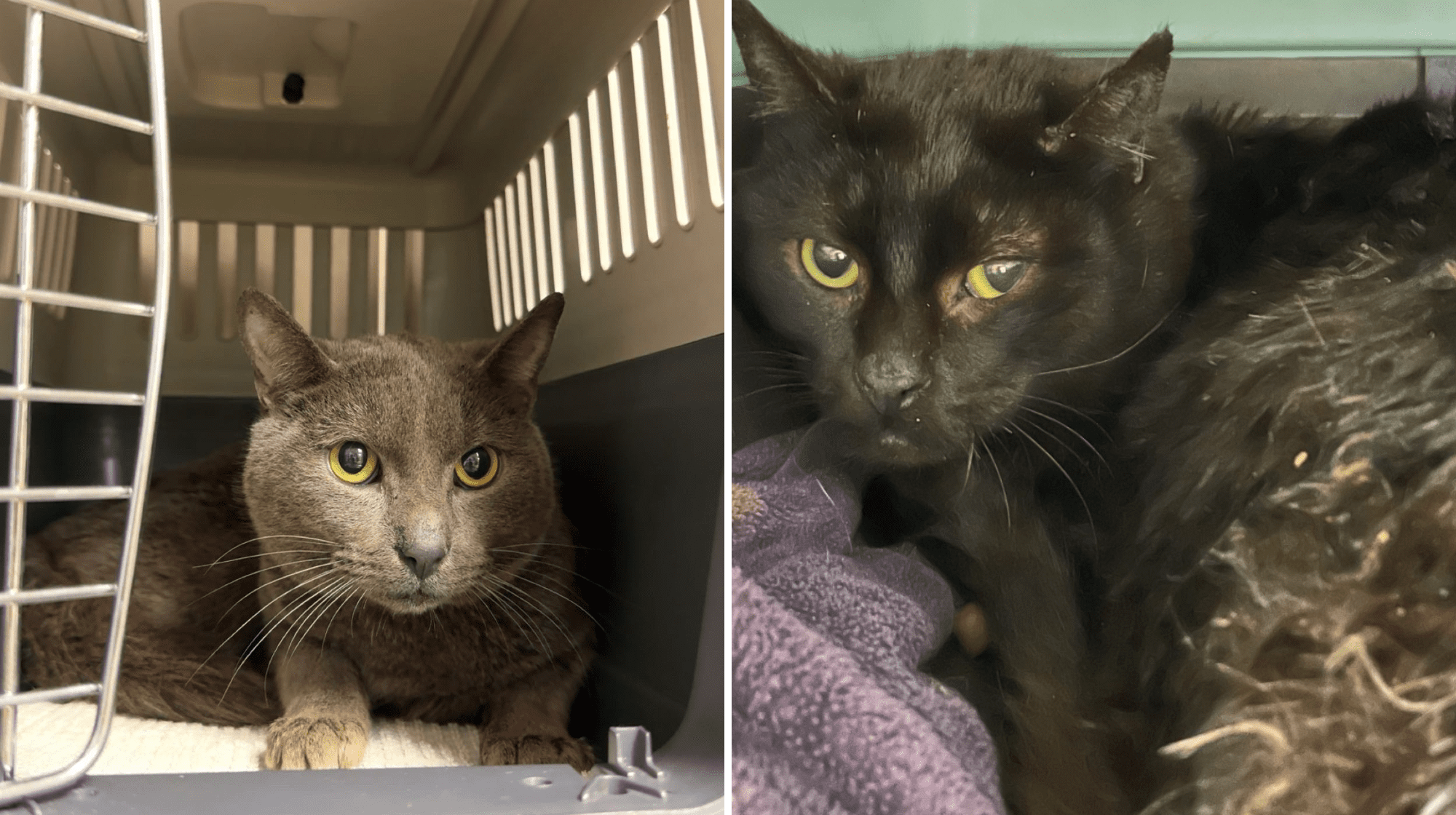
We don’t know exactly how long these cats were without food, but the majority were very dehydrated and emaciated. One of the saddest parts of this whole story is how shut down they were when we got to them. They tried to be vocal at first, but their resistance was short-lived, and they appeared to just give up. They had no more fight left in them; their frail bodies completely exhausted after living in a state of overwhelm.
This rescue came just in time.
Due to their poor condition, the group was taken directly to the closest vet to stabilize them before transferring to a BC SPCA animal centre. Once out of the dirty cages, many began cleaning themselves. It was heartbreaking to watch them lick their own waste from their fur. As you can imagine, they’ve all needed extensive baths and grooming to wash away the feces and urine. Those with longer coats have also had their mats shaved to ease their discomfort. Unfortunately, we cannot wash away their memories.
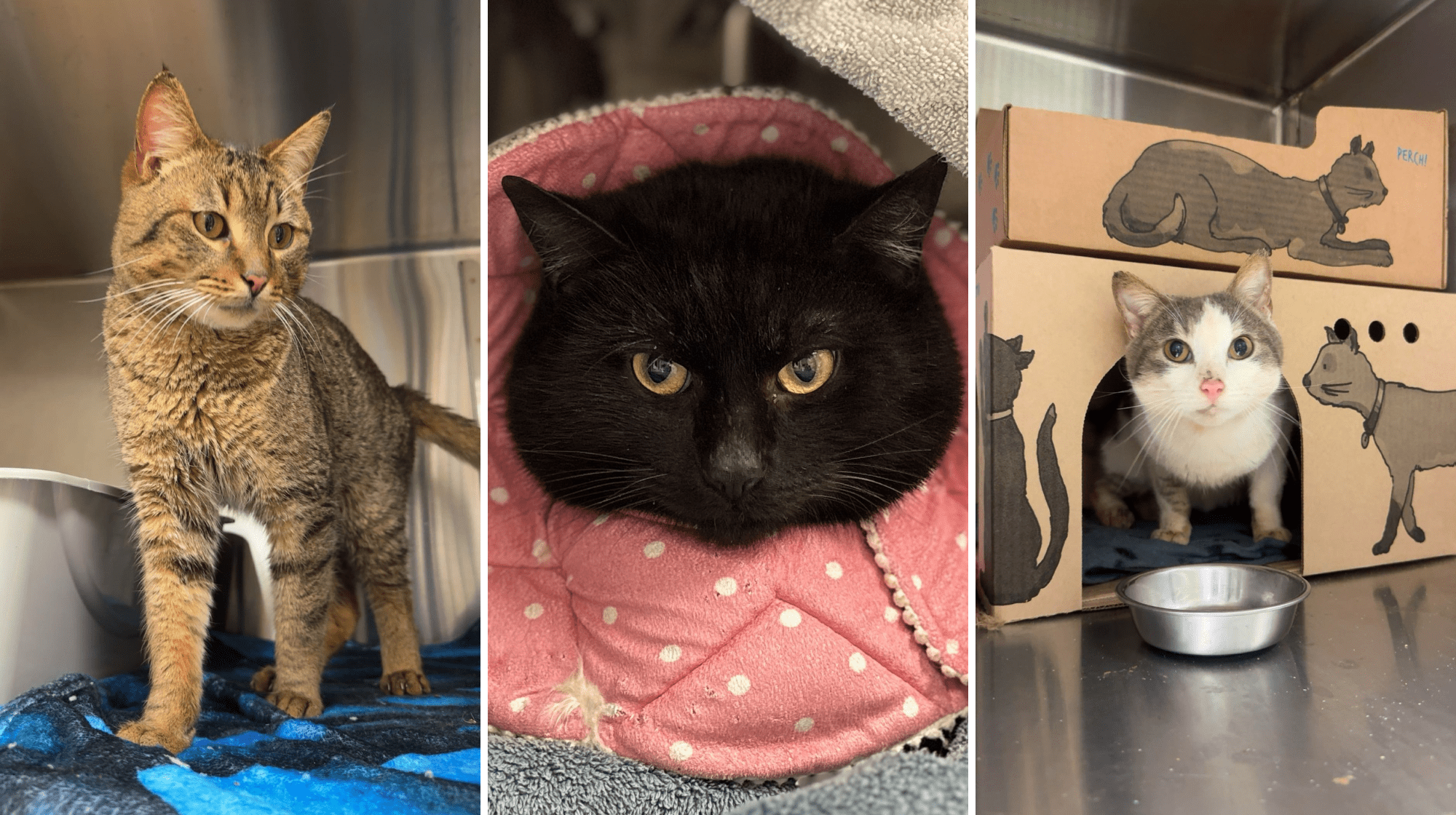
After careful examination of each animal, extensive medical needs were uncovered, including one cat with possible pyometra – a serious and life-threatening infection of the uterus. She was quickly rushed in for an emergency spay surgery.
Most of these cats were initially fearful but have quickly come around since realizing they will be fed consistently. All but three have required a refeeding plan given how emaciated they are. Fortunately, with regular small meals and gentle, caring hands to remind them what kindness feels like, many showed signs of growing trust each day. It’s wonderful to witness how compassion and love can heal their hearts.
Sadly, the youngest of the group and one adult both tested positive for feline distemper, a highly contagious and often fatal disease. The vet team made the difficult decision to relieve their suffering — we’re heartbroken that these further losses could have been prevented simply by vaccination. The rest of the group were placed on a two-week quarantine where they were monitored for symptoms, and each was vaccinated on arrival.
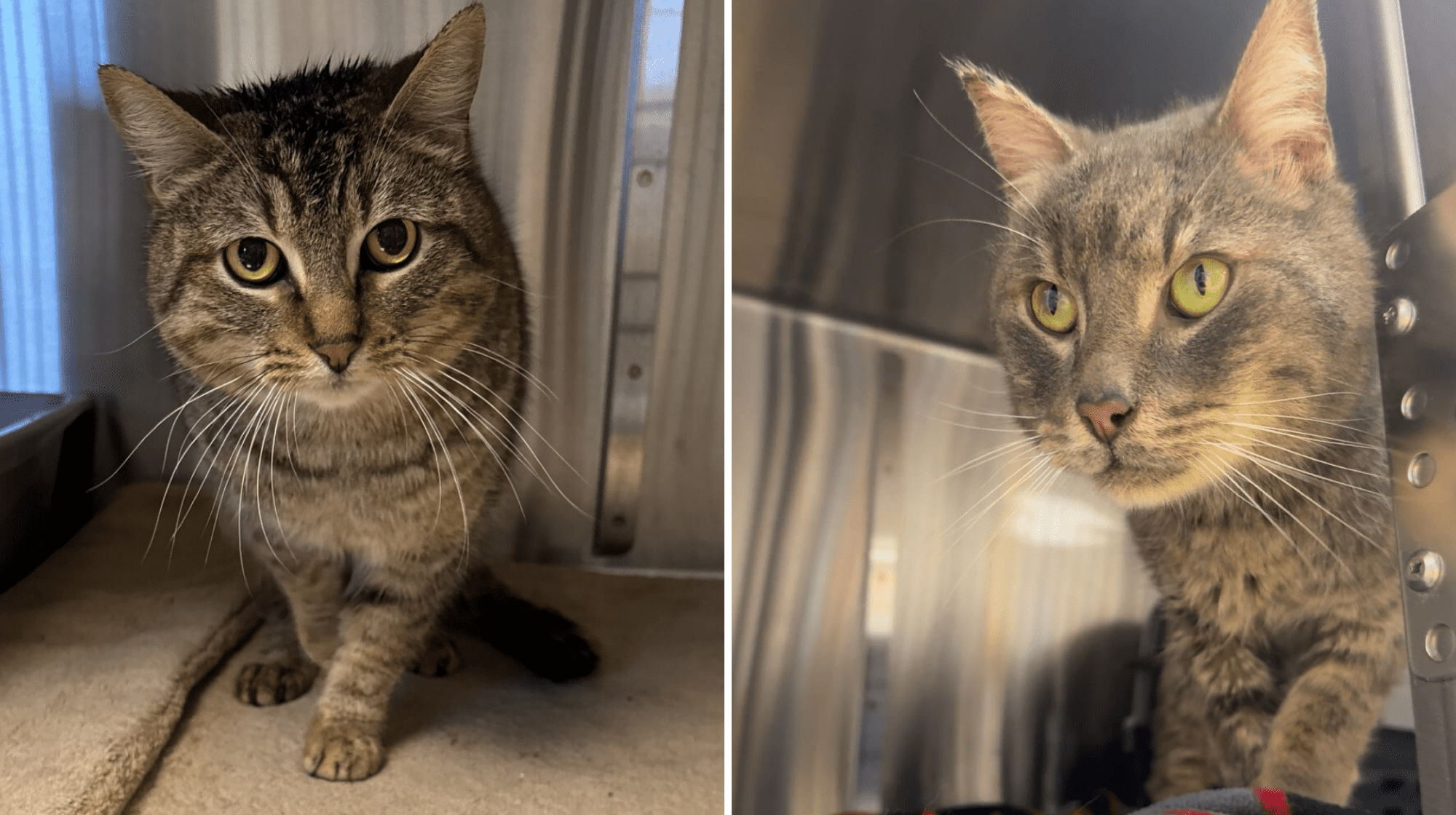
During the first day of their refeeding plan, the cats required six meals in a day. With so many to cater for, the team was in a constant loop of prepping food, delivering meals, and immediately starting to prep the next feeding. These strict schedules are extremely important to ensure their bodies are not overwhelmed after many days without nutrients.
It’s amazing to see their progress already and their personalities beginning to shine. This long-haired boy has beautiful blue eyes and can often be found sitting sphinx-like in his kennel with paws outstretched, looking very wise. When you make eye contact with him, he’ll give you a little meow to acknowledge his gratitude. For those who are less confident, the team worked slowly to build their comfort levels day by day.
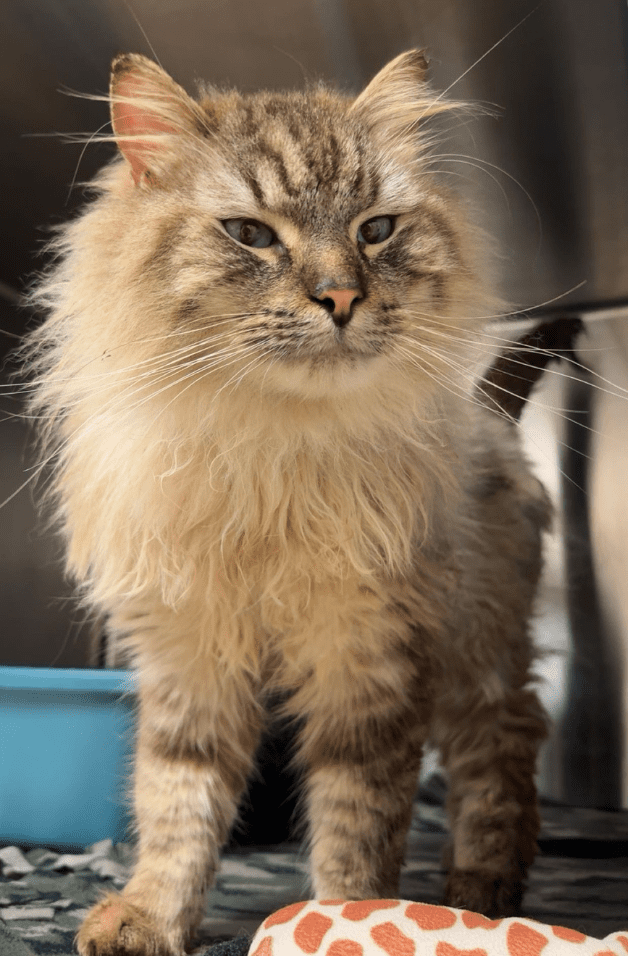
These cats are finally in the right place to receive the dedicated care they deserve after all they’ve lived through. Each day brings new hope these wee souls will know the meaning of love and kindness. Please consider being there for the next group like them in their time of need by making a kind donation today.
Thank you for reading their story and keeping these cats in your heart today. They are lucky to have friends like you.
All funds raised will protect vulnerable animals, and mobilize communities so animals and people can thrive together, by helping where the need is greatest
